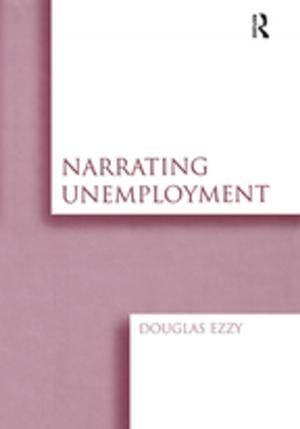Deconstructing Normativity?
Re-reading Freud’s 1905 Three Essays
Nonfiction, Health & Well Being, Psychology, Psychoanalysis, Mental Health| Author: | ISBN: | 9781315312231 | |
| Publisher: | Taylor and Francis | Publication: | February 14, 2017 |
| Imprint: | Routledge | Language: | English |
| Author: | |
| ISBN: | 9781315312231 |
| Publisher: | Taylor and Francis |
| Publication: | February 14, 2017 |
| Imprint: | Routledge |
| Language: | English |
Deconstructing Normativity? brings together a unique collection of chapters in which an international selection of contributors reflect on the fundamental and often very radical ideas present in Freud’s original 1905 edition of the Three Essays on the Theory of Sexuality.
The book has three aims: the contextualization of the text, the reconstruction of its central ideas and the further philosophical reflection of the contemporary relevance and critical potential of the 1905 edition. The authors challenge mainstream interpretations of the Three Essays, generally based on readings of the final 1924 edition of the text, and of the development of Freudian thought: including, most importantly, the centrality of the Oedipus complex and the developmental approach relative to a tendency towards heteronormativity. Deconstructing Normativity? makes an important contribution in rethinking Freudian psychoanalysis and reopening the discussion on its central paradigms, and in so doing it connects with queer and gender theories and philosophical approaches.
This book will be essential reading for psychoanalysts in practice and training, as well as academics and students of psychoanalysis, philosophical anthropology, continental philosophy, sex, gender and sexualities.
Deconstructing Normativity? brings together a unique collection of chapters in which an international selection of contributors reflect on the fundamental and often very radical ideas present in Freud’s original 1905 edition of the Three Essays on the Theory of Sexuality.
The book has three aims: the contextualization of the text, the reconstruction of its central ideas and the further philosophical reflection of the contemporary relevance and critical potential of the 1905 edition. The authors challenge mainstream interpretations of the Three Essays, generally based on readings of the final 1924 edition of the text, and of the development of Freudian thought: including, most importantly, the centrality of the Oedipus complex and the developmental approach relative to a tendency towards heteronormativity. Deconstructing Normativity? makes an important contribution in rethinking Freudian psychoanalysis and reopening the discussion on its central paradigms, and in so doing it connects with queer and gender theories and philosophical approaches.
This book will be essential reading for psychoanalysts in practice and training, as well as academics and students of psychoanalysis, philosophical anthropology, continental philosophy, sex, gender and sexualities.















